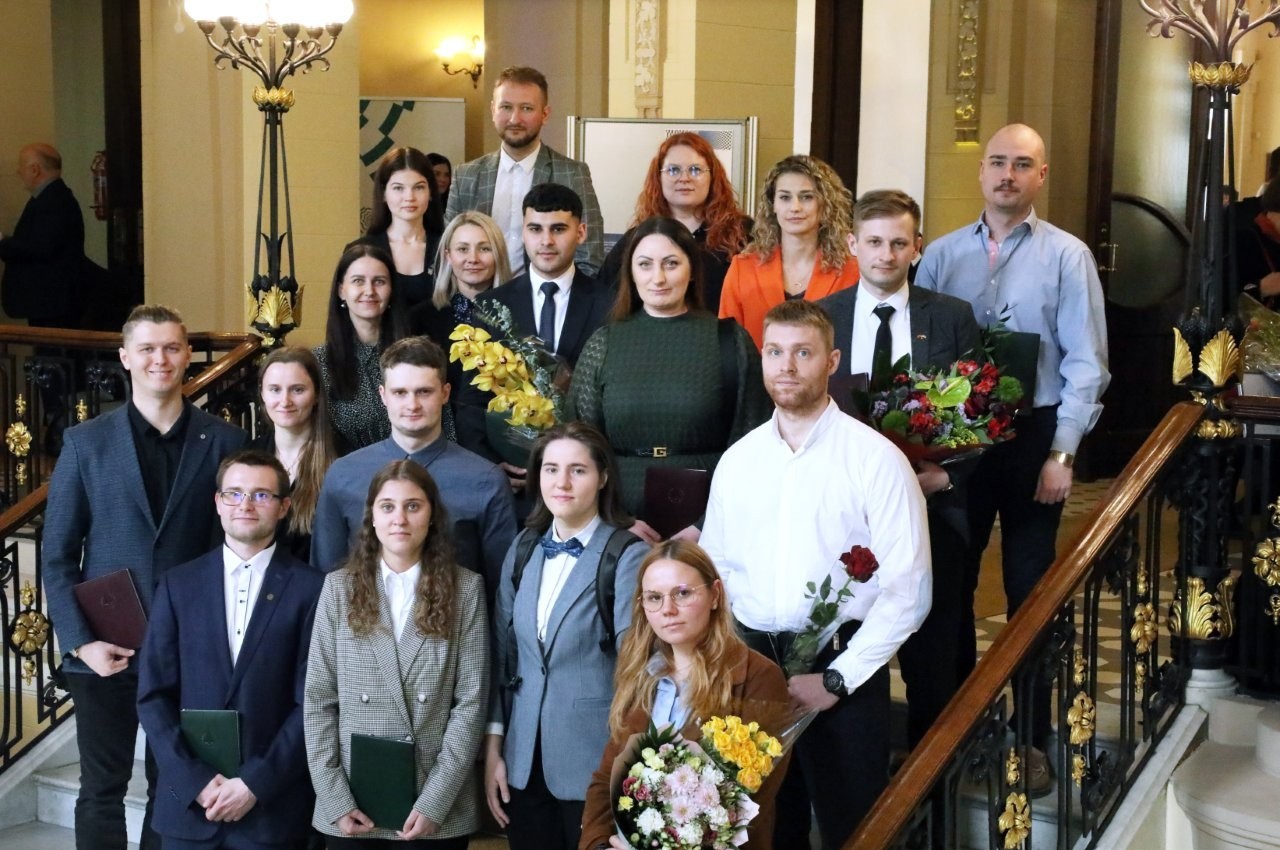Events
New Full and Foreign Members Elected at the Annual General Assembly
14 04 2025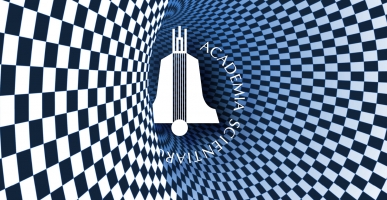
On 8 April 2024, the Lithuanian Academy of Sciences held its annual general assembly, which, along with the Academy’s members, was attended by the winners of the competitions organised by the Academy, winners of other awards, also Simona Bieliūnė, a vice-mayor of the Vilnius City Municipality, Dr Violeta Meiliūnaitė, the chair of the State Commission of the Lithuanian Language, the members of the Young Academy of the Lithuanian Academy of Sciences, the staff of the Academy, and other guests.
For the second time already, the winners of the Vilnius City Scientists’ Prize were announced. Dr Vitalija Stravinskienė, a senior researcher at the Lithuanian Institute of History, was awarded for her merits in the fields of the humanities and social sciences (research on the history of the city of Vilnius, migration processes), and Dr Gediminas Juzeliūnas, Professor Extraordinary at Vilnius University and an academician, was awarded this prize for his achievements in the fields of natural sciences, technology, medicine, and health sciences (quantum non-linear optics, cold atoms). 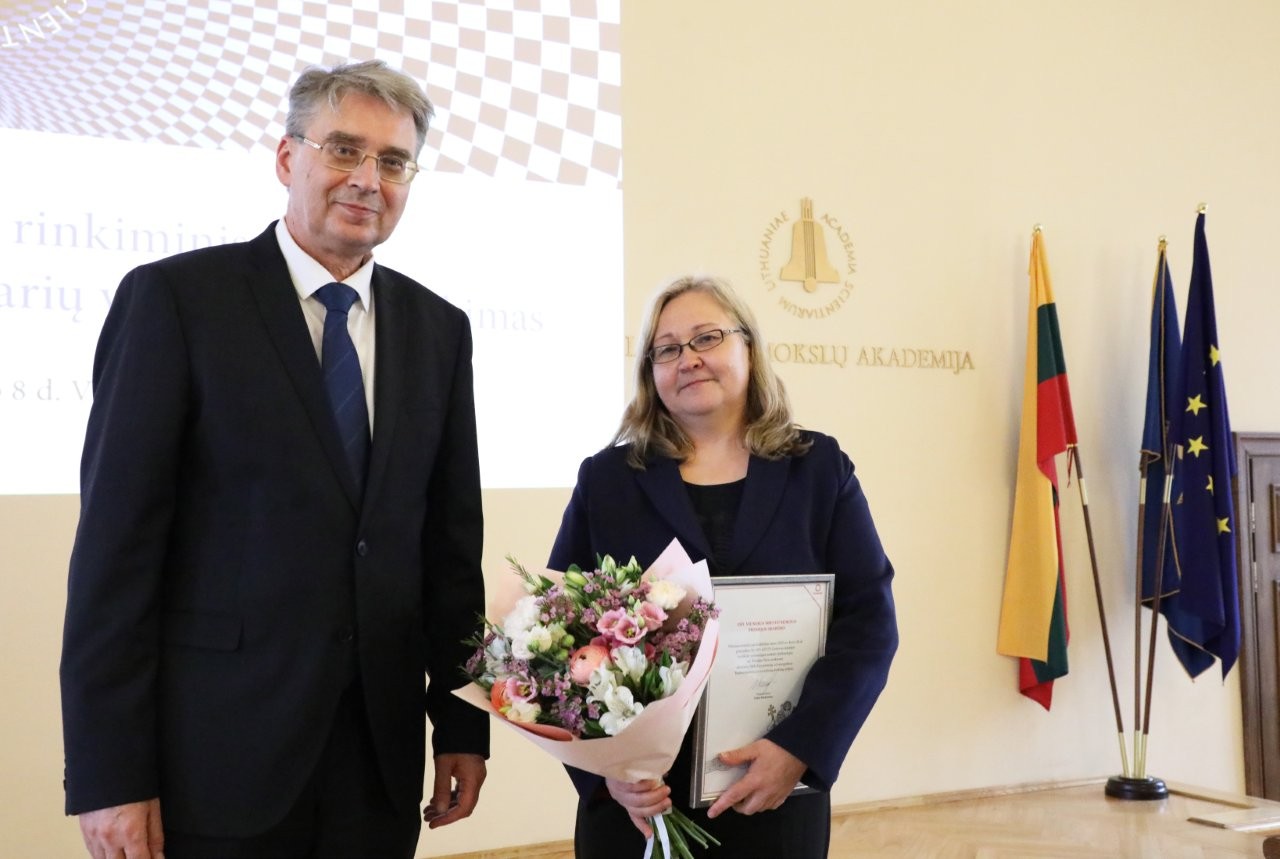
Historian Dr Vitalija Stravinskienė is awarded the Vilnius City Scientists’ Prize.
The prizes of Pranciškus Šivickis (biology), Algirdas Žukauskas (thermal physics and energy), and Jonas Kriščiūnas (agricultural sciences), established by the Lithuanian Academy of Sciences, were awarded next. Academician Vaidutis Kučinskas, who for nearly half a century has been conducting research into microevolutionary processes in the Lithuanian genome, was honoured with the Pranciškus Šivickis Prize. Dr Nerijus Striūgas (Lithuanian Energy Institute) is conducting research in the processes of biomass degradation in order to obtain combustible synthetic gases that can be used to produce synthetic fuels, for which he was awarded the Algirdas Žukauskas Prize. The winner of the Jonas Kriščiūnas Prize is Dr Rūta Šveistienė, whose work is focused on conservation of the genetic resources of Lithuania's farm animals, evaluation of local breeds for unique phenotypic and genetic characteristics.
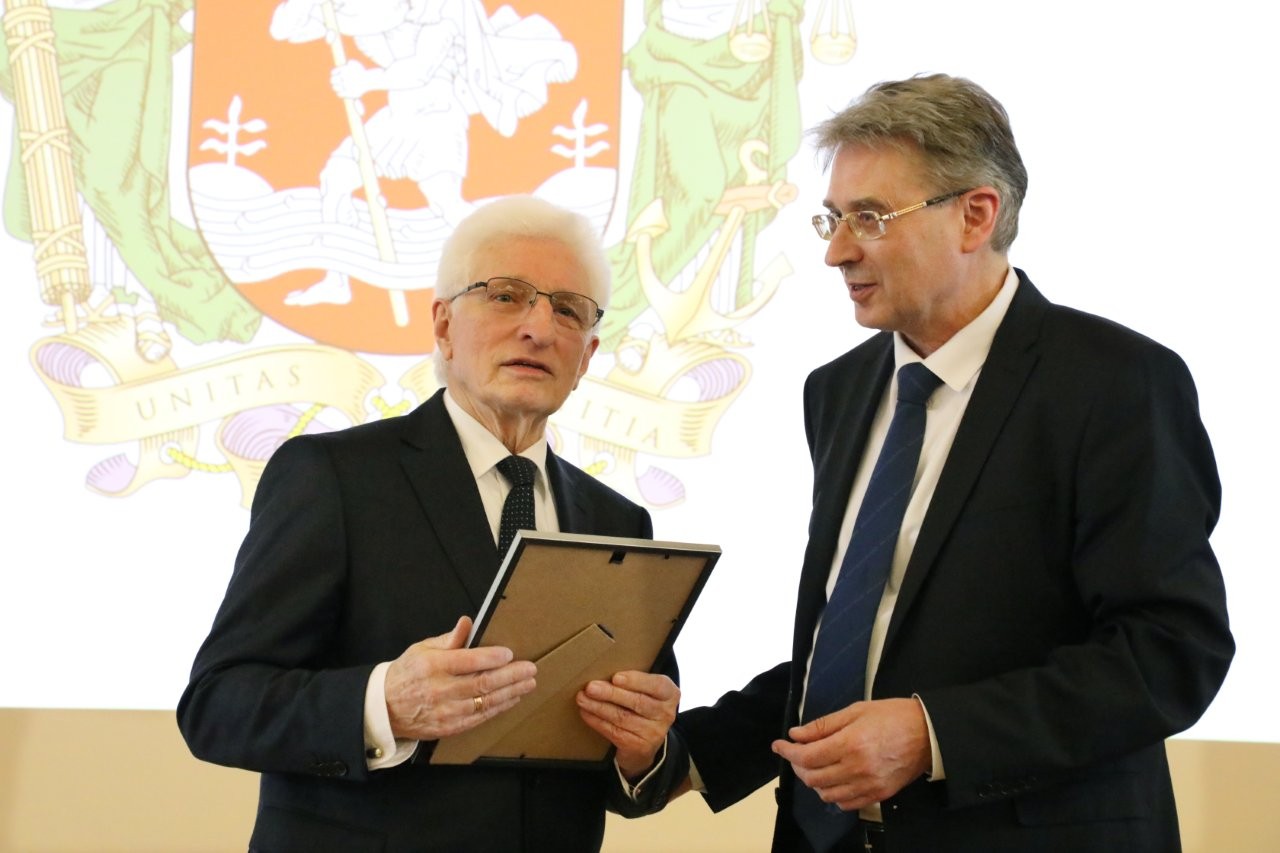
Academician Vaidutis Kučinskas, the winner of the Pranciškus Šivickis Prize.
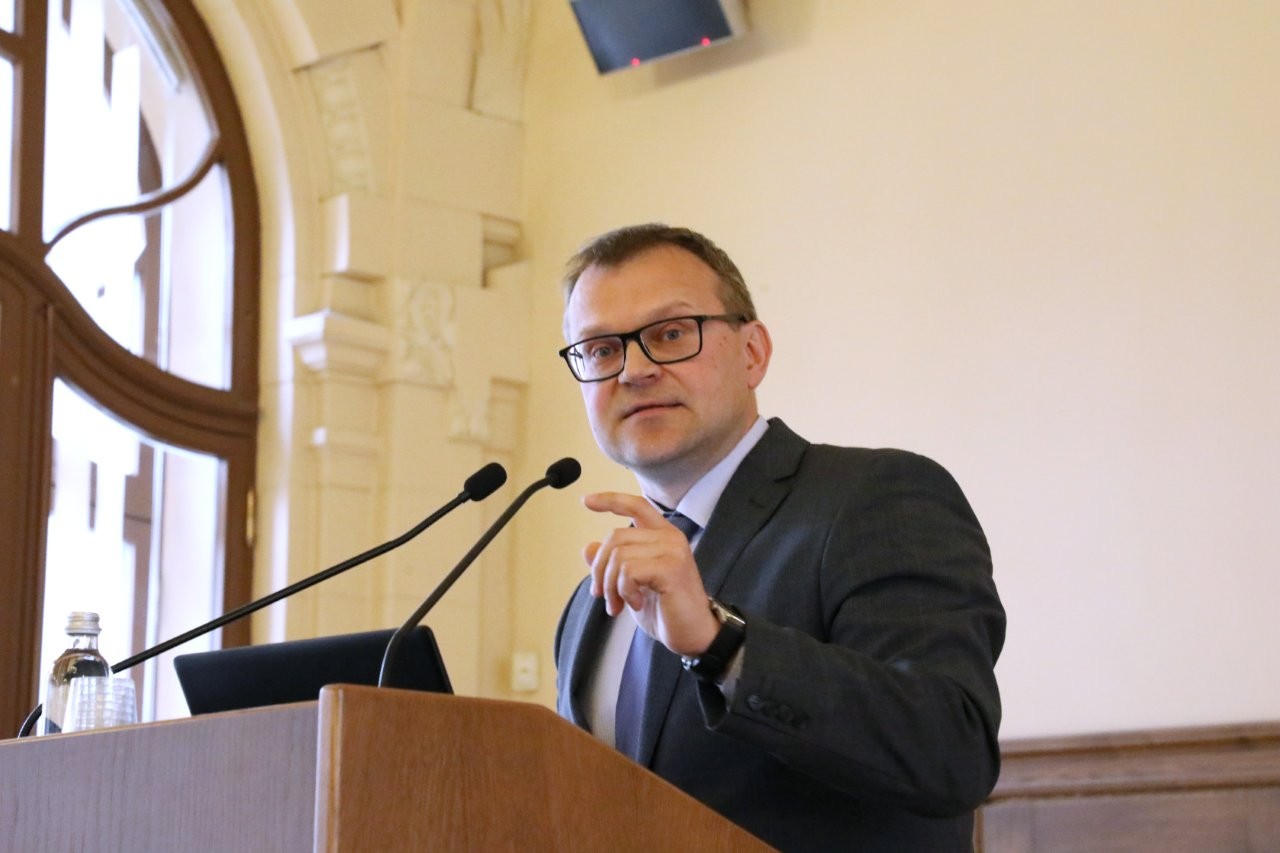
Dr Nerijus Striūgas, the recipient of the Algirdas Žukauskas Prize.
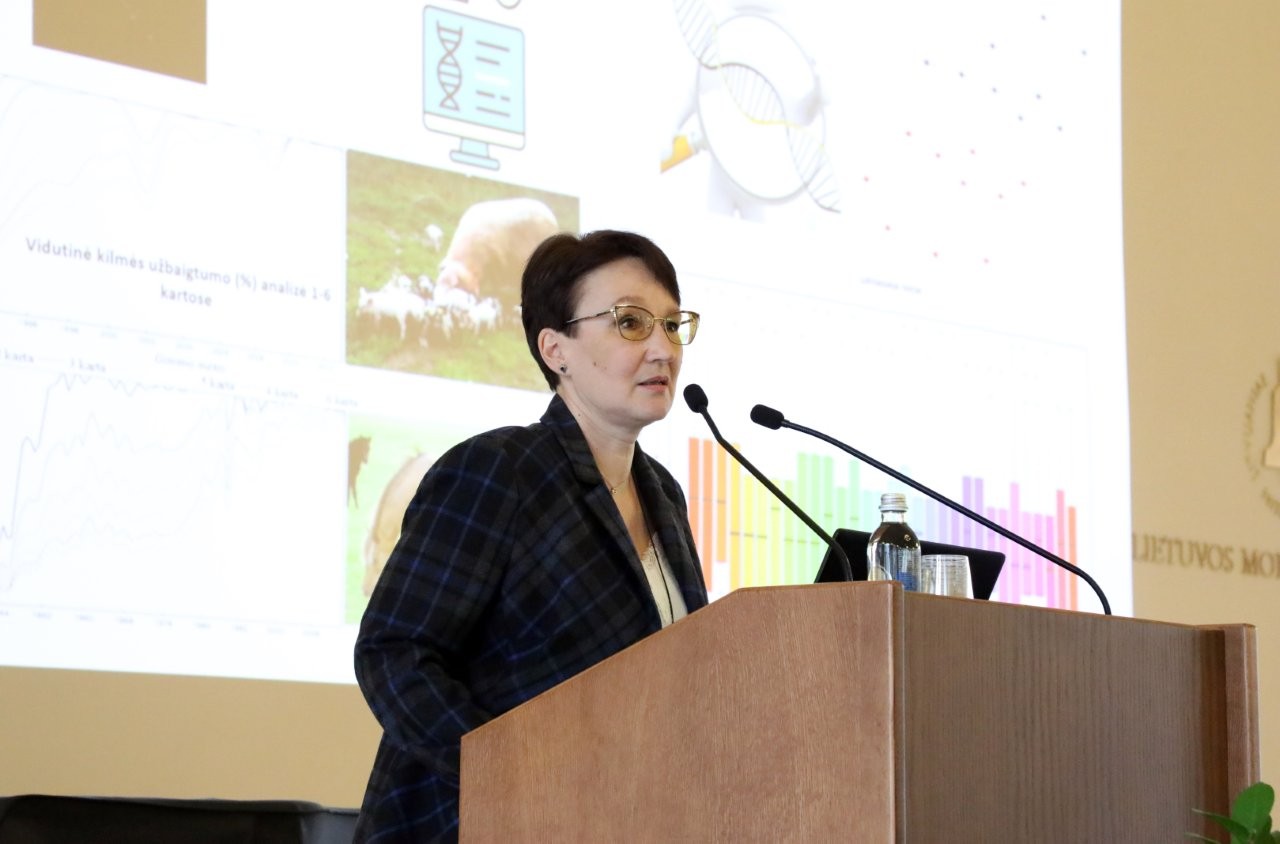
Dr Rūta Šveistienė, the winner of the Jonas Kriščiūnas Prize, is giving a presentation.
The Kazimieras Meškauskas Prize for the Best Research Work by Young Economists was awarded to Dr Akvilė Aleksandravičienė (Vytautas Magnus University).
Prof. Jūras Banys, President of the Lithuanian Academy of Sciences, and Vice-President Prof. Zenonas Dabkevičius presented awards to 25 winners of the Young Scientist and Doctoral Student Research Competition and the Higher Education Student Research Competition.
Academician Aivaras Kareiva, the chair of the Theodor Grotthuss Foundation, presented the Grotthuss Scholarship diploma to Aistė Pupiūtė, a doctoral student at Kaunas University of Technology. This scholarship is awarded to a young researcher in the field of chemistry.
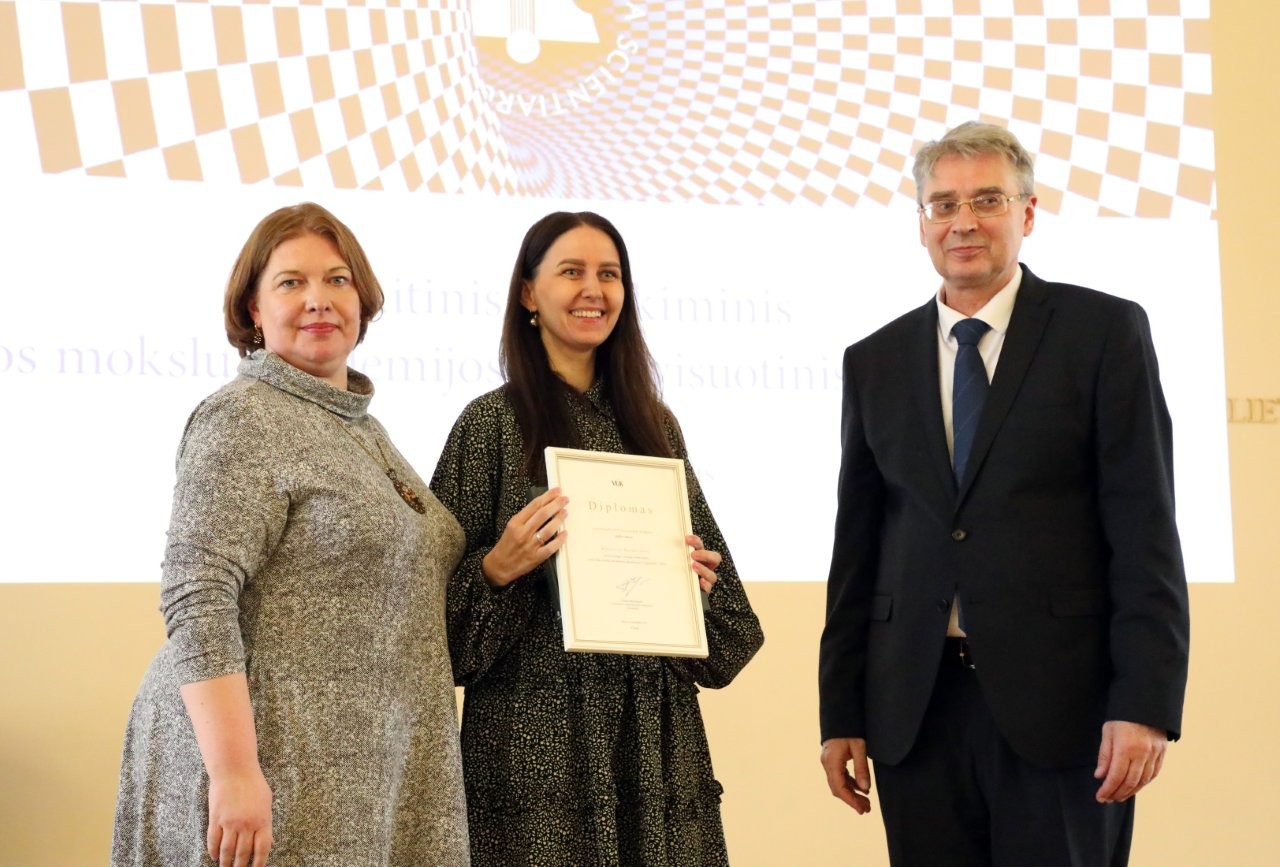
Dr Violeta Meiliūnaitė, the chair of the State Commission of the Lithuanian Language, presenting the award to Kristina Šerkšnienė.
Dr Violeta Meiliūnaitė, the chair of the State Commission of the Lithuanian Language, announced the commission’s awards to the authors of the research papers submitted for the 2024 competitions of the Lithuanian Academy of Sciences for the most correct Lithuanian language use and style. The winners of this award were Kristina Šerkšnienė (Kaunas Faculty of Vilnius University) and Dr Jonas Rapsikevičius (Kaunas University of Technology).
The young researchers awarded for their achievements.
After the award ceremonies, Prof. Jūras Banys, President of the Lithuanian Academy of Sciences, presented the Academy’s annual report for 2024. He pointed out that the Academy had announced three resolutions (on the pandemic, doctoral studies, and the implementation of sustainable development). Close to 150 events were organised, 17% of which focused on science policy topics. Prof. Banys singled out the international conference during the Three Seas Initiative Summit and Business Forum in Vilnius and the award ceremony of the Baltic Programme ‘For Women in Science’, which was hosted by the Lithuanian Academy of Sciences. Agreements and protocols were signed with the academies of sciences of Hungary, Moldova, and Albania. A cooperation agreement with Academia Sinica was signed in Taiwan. As well as collaborating with various international organisations and awarding scholarships, the members of the Lithuanian Academy of Sciences run major business projects. For example, Academician Vladas Algirdas Bumelis opened the gene therapy centre Celltechna – the first of this kind in Europe – in Vilnius. The Young Academy of the Lithuanian Academy of Sciences is also active. The Academy publishes popular sciences books and seven research periodicals. Many events were organised by ‘The Palace of Scientists’, a division of the Lithuanian Academy of Sciences. The academicians share their knowledge with the public and give lectures to schoolchildren.
The meeting concluded with the introduction of the candidates for full and foreign membership of the Lithuanian Academy of Sciences and election. The vote count resulted in all the candidates nominated becoming the new members of the Lithuanian Academy of Sciences:
Prof. Dr Tomas Kačerauskas (philosophy, nominated by Vilnius Gediminas Technical University),
Prof. Dr Ineta Dabašinskienė (linguistics, nominated by Vytautas Magnus University and Academician Bonifacas Stundžia),
Prof. Dr Andrius Vaišnys (nominated by Vilnius University),
Prof. Dr habil. Gražina Daunoravičienė (musicology, nominated by the Lithuanian Academy of Music and Theatre),
Prof. Dr Almira Ramanavičienė (chemistry, nominated by Vilnius University),
Prof. Dr Ramūnas Garunkštis (mathematics, nominated by Vilnius University),
Dr. habil. Gražina Tautvaišienė (physics, nominated by Vilnius University),
Prof. Dr Daumantas Matulis (biochemistry, nominated by Vilnius University),
Prof. Dr Arvydas Laurinavičius (medicine, nominated by Vilnius University),
Prof. Dr Vaiva Lesauskaitė (medicine, nominated by the Lithuanian University of Health Sciences),
Prof. Dr Egidijus Rimkus (physical geography, nominated by Vilnius University),
Prof. Dr Gediminas Brazaitis (forestry sciences, nominated by Vytautas Magnus University),
Prof. Dr Modestas Ružauskas (veterinary, nominated by the Lithuanian University of Health Sciences),
Prof. Dr Petras Rimantas Venskutonis (materials engineering, nominated by Kaunas University of Technology),
Prof. Dr Audrius Dėdelė (environmental engineering, nominated by Vytautas Magnus University),
Prof. Dr habil. Juozas Valivonis (construction engineering, nominated by Vilnius Gediminas Technical University).
The new foreign members of the Lithuanian Academy of Sciences are:
Prof. Dr Daniel Petit, linguistics, professor at the Paris Institute for Advanced Studies and the Practical School of Advances Studies,
Prof. Dr Mait Metspalu, genetics, director of the Institute of Genomics, University of Tartu, Estonia,
Prof. Dr Nazim Gruda, agronomy, professor at the University of Bonn and the Agricultural University of Tirana,
Prof. Dr Bernhard Peters, mechanical engineering, professor at the University of Luxembourg,
Prof. Dr Barbara Elisabeth Lothenbach, construction engineering, department head at the Swiss Federal Laboratories for Materials Science and Technology, professor at the University of Bern and the Norwegian University of Science and Technology.
At the end of this event-filled annual electoral assembly, Prof. Jūras Banys congratulated the new colleagues and wished everyone a happy holiday season.
Dr Rolandas Maskoliūnas, Chief Specialist for Public Relations
Translated by Diana Barnard
Photography Virginija Valuckienė
PHOTO GALLERY
